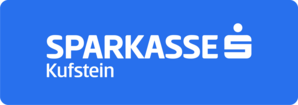
Apply
now
now
Risk management: Fundamentals
level of course unit
BachelorLearning outcomes of course unit
The students
• know the tasks, methods and processes in the functional and resource area of HR management.
• understand the essential problems and solution approaches of human resource management and leadership.
• know the most important task fields, concepts and instruments of a modern HR management and are able to design the management-relevant task fields.
• are familiar with the most important organizational and operational concepts of the
and understand the connection between personnel and organizational development.
• know the possibilities of digitalization in HRM.
• know the basic contents of New Work and understand its significance for future HR management.
• know the tasks, methods and processes in the functional and resource area of HR management.
• understand the essential problems and solution approaches of human resource management and leadership.
• know the most important task fields, concepts and instruments of a modern HR management and are able to design the management-relevant task fields.
• are familiar with the most important organizational and operational concepts of the
and understand the connection between personnel and organizational development.
• know the possibilities of digitalization in HRM.
• know the basic contents of New Work and understand its significance for future HR management.
prerequisites and co-requisites
None
course contents
Part A: Personnel functions in the company:
• Management and functional function
• Tasks of the personnel department (personnel recruiting, personnel development, personnel maintenance)• Organization of the personnel department
Part B: Personnel selection & recruiting
• Requirement, ability and suitability profiles
• Instruments of personnel selection (application documents, selection interviews, psychological tests, assessment centers, legal framework, digitalization in personnel recruiting)
• Digitalization in personnel recruiting
Part C: Personnel assessment & development
• Purpose of personnel assessment
• Approaches to personnel assessment (trait-oriented, activity-oriented & results-oriented approach)
• Appraisal interview
Part D: Employee Management
• Motivation and motivation theories
• Cognitive choice theories (valence, subjective probability, action motivation)
• Self-regulation theories (management-by-approaches)
• Need-tension theories (Maslow's pyramid, Richards & Greenlaw's motivation model, Herzberg's two-factor theory)
• Maturity continuum according to Argyris
• Job satisfaction and motivation
• Motivating work design (job rotation, job enlargement, job enrichment)
• Modern working world and digitalization incl. New Work
Part E: Remuneration
• Basics of wage differentiation (wage rate differentiation, wage form differentiation, collective agreement)
• Compensation and motivation/satisfaction
• Management and functional function
• Tasks of the personnel department (personnel recruiting, personnel development, personnel maintenance)• Organization of the personnel department
Part B: Personnel selection & recruiting
• Requirement, ability and suitability profiles
• Instruments of personnel selection (application documents, selection interviews, psychological tests, assessment centers, legal framework, digitalization in personnel recruiting)
• Digitalization in personnel recruiting
Part C: Personnel assessment & development
• Purpose of personnel assessment
• Approaches to personnel assessment (trait-oriented, activity-oriented & results-oriented approach)
• Appraisal interview
Part D: Employee Management
• Motivation and motivation theories
• Cognitive choice theories (valence, subjective probability, action motivation)
• Self-regulation theories (management-by-approaches)
• Need-tension theories (Maslow's pyramid, Richards & Greenlaw's motivation model, Herzberg's two-factor theory)
• Maturity continuum according to Argyris
• Job satisfaction and motivation
• Motivating work design (job rotation, job enlargement, job enrichment)
• Modern working world and digitalization incl. New Work
Part E: Remuneration
• Basics of wage differentiation (wage rate differentiation, wage form differentiation, collective agreement)
• Compensation and motivation/satisfaction
recommended or required reading
• Bratton, J., & Gold, J. (2022). Human resource management: A critical approach. London, UK: Bloomsbury Academic.
• Dessler, G. (2023). Human resource management. Essex, UK: Pearson Education Limited.
• Lippold, D. (2021). Personalführung im digitalen Wandel: Von den klassischen Führungsansätzen zu den New-Work-Konzepten. Berlin/Boston: Walter De Gruyter GmbH.
• Trost, A. (2020). Human resources strategies: Balancing stability and agility in times of digitization. Cham: Springer Verlag.
• Wilton, N. (2022). An introduction to human resource management. London, UK: SAGE Publications.
• Dessler, G. (2023). Human resource management. Essex, UK: Pearson Education Limited.
• Lippold, D. (2021). Personalführung im digitalen Wandel: Von den klassischen Führungsansätzen zu den New-Work-Konzepten. Berlin/Boston: Walter De Gruyter GmbH.
• Trost, A. (2020). Human resources strategies: Balancing stability and agility in times of digitization. Cham: Springer Verlag.
• Wilton, N. (2022). An introduction to human resource management. London, UK: SAGE Publications.
assessment methods and criteria
- Final presentation and
- Quiz
- Quiz
language of instruction
Germannumber of ECTS credits allocated
3eLearning quota in percent
50course-hours-per-week (chw)
2planned learning activities and teaching methods
50 % of the event is covered by eLearning. A combination between online phases (inductive method for the independent acquisition of knowledge and the practice of tasks) and presence phases (deductive method, in which assistance is given in the learning process and knowledge is imparted via frontal lectures) is used.








